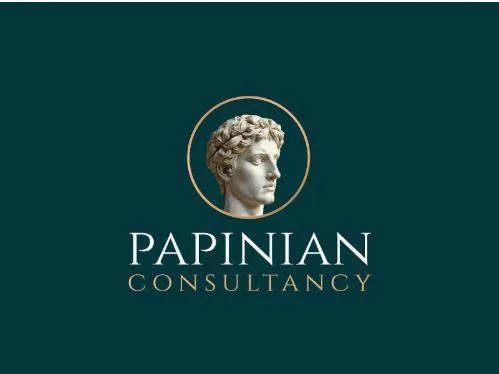Mastering Corporate Law in Dubai: Essential Strategies for Business Formation and Growth in the UAE
As the UAE continues to attract global investors, mastering corporate law has become a key element for success. Dubai, with its robust economic growth, strategic location, and business-friendly environment, remains a prime destination for entrepreneurs and international investors seeking to establish and grow their businesses. Navigating the complexities of corporate law in Dubai is essential for anyone looking to set up a company in the UAE, whether it involves UAE company formation, understanding shareholder agreements in UAE, or ensuring regulatory compliance for UAE businesses.
At the forefront of corporate legal expertise in the UAE is Dr. Ahmad Kezbari, CEO of Papinian Consultancy. With over 25 years of experience, Kezbari offers invaluable guidance to businesses navigating the intricacies of corporate law. Under his leadership, Papinian Consultancy has become a trusted name in providing comprehensive legal services, helping businesses thrive in a competitive market. This article will outline the key strategies for mastering corporate law in Dubai, with insights from Dr. Ahmad Kezbari on how businesses can navigate the challenges and seize opportunities in the UAE.
Overview of UAE Corporate Structures: Mainland vs. Free Zones
When establishing a business in the UAE, one of the first critical decisions is choosing between mainland and free zone company structures. Both options have distinct advantages, but the choice depends on the business’s goals, operations, and target market.
- Mainland Businesses: Mainland companies are allowed to operate anywhere within the UAE, including the lucrative government sector. However, these companies require a local sponsor, which is a key consideration for foreign investors. Companies established on the mainland are subject to regulatory controls by local authorities, and compliance with various government regulations is mandatory.
- Free Zones: Free zones provide a unique advantage, especially for foreign investors, as they offer 100% ownership, tax exemptions, and simplified regulations. However, businesses in free zones are typically limited to operating within the free zone itself or engaging in international trade. Free zones are ideal for businesses in sectors such as technology, logistics, and trade.
Dr. Ahmad Kezbari, CEO of Papinian Consultancy, highlights a common pitfall many entrepreneurs face, “While free zones offer an attractive option for 100% foreign ownership, it’s important to understand the restrictions on operating outside the zone. Mainland businesses, although requiring local sponsorship, offer broader opportunities, including access to government contracts.”
Papinian Consultancy’s team of experts is well-versed in both structures and provides tailored advice to businesses on which option best suits their goals, ensuring compliance with UAE regulations.
Strategies for Mergers & Acquisitions (M&A) and Joint Ventures
Mergers and acquisitions (M&A) and joint ventures in UAE are significant business strategies for expansion, diversification, and gaining market share. These transactions can be complex and require careful planning and execution to ensure compliance with UAE laws.
M&A activities in Dubai are heavily regulated, and businesses involved in cross-border mergers need to navigate both local and international regulations. Papinian Consultancy has helped numerous clients successfully navigate these complexities. For instance, the firm recently assisted a client with a cross-border merger by providing guidance on compliance with UAE regulations and drafting the necessary agreements.
Dr. Ahmad Kezbari emphasizes the importance of due diligence in any M&A deal: “Due diligence is crucial to uncover any potential risks, liabilities, or regulatory issues that may arise post-merger. Proper legal structuring can mitigate these risks and ensure a smooth transition.”
In joint ventures, where two or more businesses collaborate to achieve common goals, it is essential to have a clear and legally binding shareholder agreement in the UAE. This agreement defines each party’s rights and obligations, including profit-sharing, decision-making processes, and dispute resolution. Papinian Consultancy excels at drafting such agreements, ensuring that all parties are legally protected and their interests are safeguarded.
For more on how to structure and manage these critical corporate strategies, visit Papinian Consultancy’s Business Management Consultancy.
Regulatory Tips: Shareholder Agreements and Compliance
Regulatory compliance for UAE businesses is a key aspect of corporate law. The UAE has a robust legal framework that businesses must adhere to, especially concerning shareholder agreements, commercial contracts, and tax compliance.
Shareholder agreements are critical for businesses, especially when there are multiple stakeholders involved. These agreements provide clarity on the roles, responsibilities, and expectations of each shareholder, ensuring smooth operations and preventing conflicts. Papinian Consultancy specializes in drafting these agreements, ensuring they comply with local laws while protecting the interests of all parties involved.
Dr. Ahmad Kezbari stresses, “A well-structured shareholder agreement is essential to prevent disputes between partners and ensure a harmonious business relationship. It helps define ownership percentages, voting rights, and exit strategies, which are critical for long-term business success.”
Additionally, businesses in the UAE must comply with various laws regarding data protection, employment, and consumer rights. Papinian Consultancy assists clients in staying up to date with these regulations, offering consultancy on how to integrate legal compliance into everyday operations.
Looking Towards the Future: Trends in UAE Corporate Law Post-2025
As the UAE continues to evolve, so does its business environment. The country’s Vision 2025 initiative focuses on diversifying its economy and fostering innovation in sectors like technology, renewable energy, and healthcare. This will lead to changes in corporate law, with new regulations likely to emerge that businesses will need to adapt to.
Dr. Ahmad Kuzbari offers his insights, “Businesses must stay ahead of the curve when it comes to regulatory changes. As the UAE evolves into a global leader in innovation, companies must be prepared to adopt new technologies and adapt to new legal frameworks.”
Looking ahead, corporate law in the UAE will likely become more dynamic, with further integration of technology into business operations. Businesses that are proactive in their legal compliance and strategic planning will be better positioned to capitalize on new opportunities and overcome potential challenges.
Conclusion: Adapting to the Changing Business Landscape
Mastering corporate law in Dubai is not only about navigating legal complexities but also about positioning your business for growth and success in a rapidly evolving market. From understanding UAE company formation and selecting the right corporate structure to drafting solid shareholder agreements UAE and ensuring regulatory compliance UAE businesses, the right legal strategies are essential for long-term success.
As Dr. Ahmad Kezbari suggests, “The key to thriving in Dubai’s competitive business environment is staying informed about legal changes, structuring deals properly, and ensuring compliance at every step. With the right legal support, businesses can unlock immense growth opportunities.”
For expert guidance on corporate law in Dubai, visit Papinian Consultancy to learn more about how their corporate services can help you establish, grow, and protect your business in the UAE.







